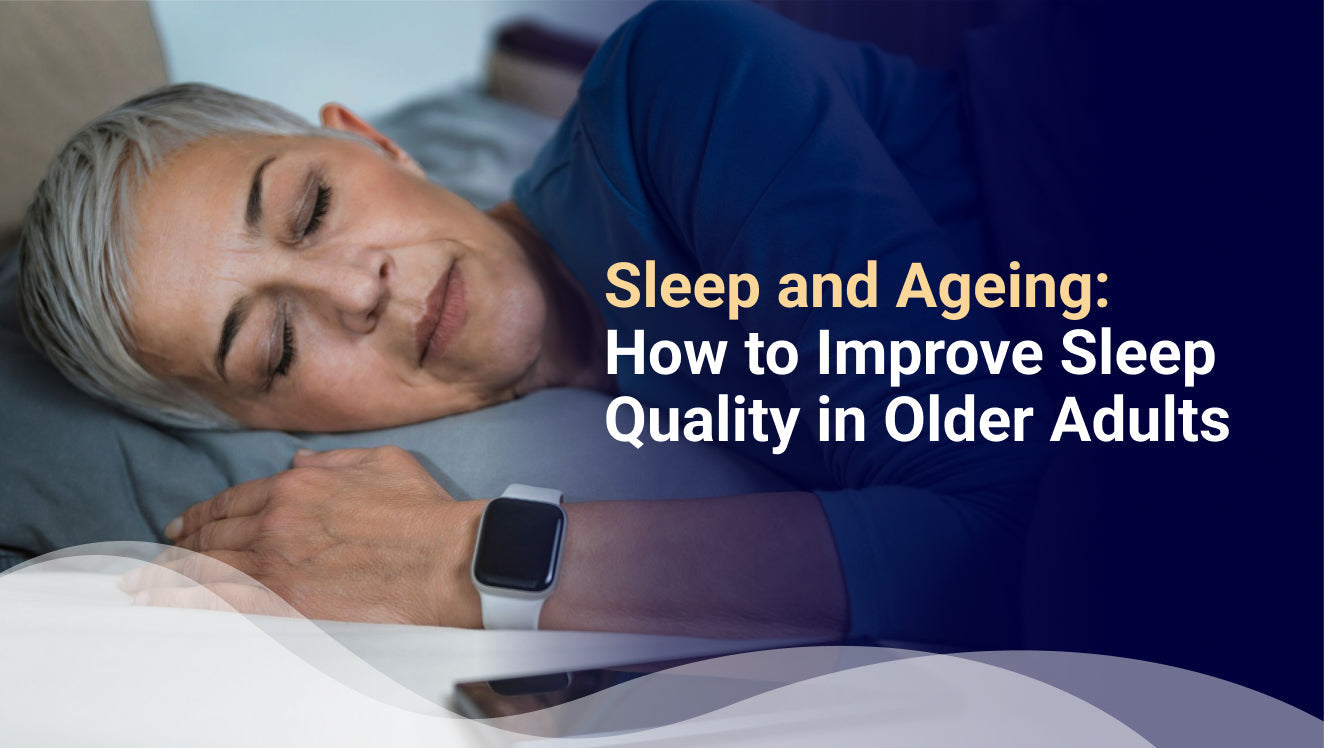Why Does Sleep Become More Difficult with Age?
As people grow older, sleep often changes in ways that can feel frustrating or confusing. Many elderly adults find themselves waking up more often at night, rising earlier in the morning, or struggling to fall asleep in the first place. This is not simply “poor sleep habits” it’s tied to biological changes.
The body’s internal clock (circadian rhythm) shifts with age, nudging people toward earlier bedtimes and wake-ups. At the same time, melatonin production the hormone that signals it’s time to sleep decreases. Physical discomforts, medications, or chronic health conditions may also interfere with rest.
The result? Sleep tends to become lighter and more fragmented. Yet, despite these changes, quality sleep remains essential. Older adults typically need about 7–8 hours of rest, and the depth of that rest is critical for memory, mood stability, physical healing, and overall health. While you can also read - Sleep experience in our elder population
What Happens to the Brain During Sleep in Older Adults?
Sleep isn’t just about rest; it’s about repair. Deep sleep (delta-wave activity) plays a vital role in consolidating memories, clearing metabolic waste from the brain, and supporting immune function. When ageing disrupts this cycle, people may feel foggy, irritable, or less resilient the next day.
This makes prioritising deeper, more restorative sleep especially important in the later stages of life.
How Can Older Adults Improve Sleep Naturally?
While medications are sometimes prescribed for insomnia, they can bring side effects and dependency risks. Natural, brain-based solutions often work better long-term. Here are practical strategies:
-
Create a Consistent Sleep Routine: Go to bed and wake up at the same time daily.
-
Limit Screens Before Bed: Blue light suppresses melatonin. Reading or gentle stretching helps instead.
-
Keep Nights Calm and Predictable: Dim lights, quiet the environment, and cool the bedroom temperature.
-
Daylight Exposure: Morning sunlight helps reset circadian rhythm and improves melatonin production at night.
-
Gentle Movement: Light exercise during the day can improve sleep depth. You must read that, How NeuroVIZR uses light to improve sleep
Can Technology Like neuroVIZR Improve Sleep Quality in the Elderly?
Yes. One innovative, non-invasive option is neuroVIZR brain training devices, a wellness device that uses light and sound stimulation to guide the brain into states that naturally promote relaxation and deeper sleep.
Instead of forcing sleep with chemicals, neuroVIZR works with the brain’s natural rhythms to:
-
Promote Relaxation Before Bed: Evening sessions calm mental “noise” that prevents falling asleep.
-
Support Deep Sleep: Delta-wave stimulation helps the brain enter restorative sleep stages for memory and healing.
-
Build Consistency: Regular use trains the brain to associate sessions with rest, helping older adults fall asleep faster and stay asleep longer.
-
Avoid Side Effects: Safe, non-invasive, and drug-free ideal for older individuals sensitive to medications.
How Can Older Adults Use neuroVIZR for Better Sleep?
To make the most of neuroVIZR’s benefits, older adults can incorporate it into daily rhythms:
-
Morning Sessions (15–20 min): Boost energy, align circadian rhythm, and set the body clock.
-
Midday Sessions (10–15 min): Release stress through calming brainwave states, preventing night-time anxiety.
-
Evening Sessions (30–60 min before bed): Encourage delta activity and create a restful, sleep-ready brain state.
-
Pair with Healthy Habits: Consistent routines, dim lights, and relaxing activities amplify neuroVIZR’s effects.
Also read - 5 natural tips to fall asleep faster
Why neuroVIZR May Be the Best Natural Sleep Aid for Older Adults
Unlike traditional pills, neuroVIZR provides a personalised, non-invasive path to restorative rest. With over 100 light and sound sessions including specialised programs optimised around 40 Hz it gently restores balance to the sleep-wake cycle.
Its portability and simplicity make it easy for older adults to use at home or while travelling, giving them control over their sleep quality in a natural, empowering way.
In short: sleep may change with age, but restful, restorative nights are still possible. neuroVIZR offers a modern, safe, and science-backed way to get there.



























Partager:
Morning Routines with Neurotechnology to Boost Focus
11 Wearable Wellness Gadgets & Brain Devices to Try in 2025